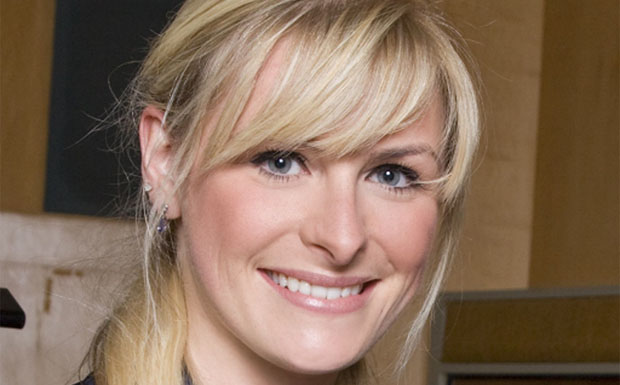Average house prices increased by 12.8% over the year to May 2022, up from 11.9% in April 2022, according to the latest figures from the Office for National Statistics (ONS).
This put the average UK house price at £283,000 in May 2022, some £32,000 higher than this time last year.
Average house prices increased over the year in England to £302,000 (13.1%), in Wales to £212,000 (14.4%), in Scotland to £188,000 (11.2%) and in Northern Ireland to £165,000 (10.4%).
The South West was the region with the highest annual house price growth, with average prices increasing by 16.9% in the year to May 2022. This was up from a growth rate of 14.7% in April 2022.
The lowest annual house price growth was in London, where average prices increased by 8.2% over the year to May 2022, up from 6.9% in April 2022.
Despite being the region with the lowest annual growth, London’s average house prices remain the most expensive of any region in the UK, with an average price of £526,000 in May 2022.
The North East continued to have the lowest average house price at £154,000.
Reaction
Anna Clare Harper, director of real estate technology platform IMMO:
“House prices are seen as a reflection of confidence. From that perspective, the latest house price data seems like a good thing.
“However, that’s not the full story. Consumer confidence is down, and for good reason: we are not yet through the global health challenge of Covid, international war and political turmoil – first Brexit, now leadership uncertainty.
“House prices are still booming due to shortages of supply. We have an acute shortage of properties for sale and for rent which are affordable, in places people want and need to live, of good quality.
“The only way to resolve this is to encourage long-term, professional investors into the sector, to rectify the shortage of supply and resolve this backlog.’
Tomer Aboody, director of property lender MT Finance:
“With such low numbers of properties coming to the market, it’s not surprising prices continue to rise as buyers compete for limited stock.
“With interest rates rising, along with inflation and house prices, first-time buyers and movers are facing even tougher conditions with the market running away from them.
“Getting more properties onto the market is key. A restructure of stamp duty might encourage potential sellers to enter the market knowing that the cost of moving, whether upsizing or downsizing, is lower, and therefore more affordable.”
Mark Harris, chief executive of mortgage broker SPF Private Clients:
“As house prices continue to rise, inflation soars to 9.4% and with more interest rate hikes on the way, there is growing concern around affordability and borrowing potential.
‘Mortgage rates remain competitive although they are on the rise. Borrowers need to move quickly to secure the best fixed rates as they are often pulled at short notice.
“With service levels varying considerably between lenders, it may take longer than borrowers anticipate, particularly if their case is complex so advice is more important than ever.’
Jeremy Leaf, north London estate agent and a former RICS residential chairman:
“This most comprehensive of all house price surveys, though a little dated, offers a reliable snapshot of housing market activity.
“As we are finding at the sharp end, prices are continuing their upward path, despite the impact of 40-year high inflation and five successive interest rate rises.
“However, the continuing lack of choice, combined with a desire to take advantage of mortgage offers at super-low rates before they expire, have given the market added impetus.”

James Briggs, head of personal finance intermediary sales at specialist lender Together:
“We’re continuing to see rising house prices, primarily because the demand for homes is still outstripping supply. The housing market remains in relatively good health and can be seen as an outlier compared to other areas of the economy, which is beginning to buckle under rising inflation of more than 9%.
“These inflationary pressures are being driven by rising household bills for essentials such as food and fuel, heavily impacting on the cost of living for many. Wages are failing to keep pace with the highest inflation in 40 years, meaning affordability is becoming a major issue for would-be homebuyers.
“This, coupled with the current political uncertainty, is likely to lead to a cooling in the housing market going forwards as buyers hold out for better financial certainty before committing to large purchases, with all signs pointing to a house price slowdown in the coming months.”
Richard Eagling, personal finance expert at NerdWallet: “A cooling off period for the property market still seems to be in the offing, and it is always important to note that the ONS house price index tracks a couple of months behind others, so it was unlikely that today’s data would show any slowdown in price growth just yet.
“Many prospective homebuyers will be watching prices with great interest, deciding when the right time is to act.
“As with any financial commitment, it is imperative that individuals first evaluate all facets of their financial situation, including their personal savings, credit ratings, outstanding debts, and income. Once this is completed, they can adjust their budget and factor in higher costs – and potentially reassess their home search.
“Additionally, would-be homebuyers must carefully evaluate any mortgage offers, and research the best deals available in terms of rates and loan-to-value options. Making use of online tools such as comparison sites can be helpful here, as it can speed up the process.
“It remains to be seen whether the dual challenge of rising interest rates and inflation will cause house prices to stabilise or deflate a little after a two-year period of remarkable growth. But byers who do their research and preparation now will put themselves in the best position to act when the time is right for them.”

Paresh Raja, CEO of Market Financial Solutions:
“Political and economic uncertainty invariably fuels speculation that the property market will suffer, but we should be wary of predicting any radical shifts.
“Rising inflation and interest rates, coupled with political jousting within the Conservative Party, are clearly all factors that will affect the actions of many buyers and sellers across the market. But other factors are at play.
“The perennial undersupply of property plays a critical role in keeping prices high, and this is an issue that will take many, many years to tackle.
“Moreover, we have seen throughout the pandemic that despite a great deal of uncertainty, house prices have risen.
“This is because many homebuyers and investors often seek out the security of bricks and mortar as an asset to own – a reflection of the long-term trend of property prices rising and rising.
“That is why we should not be too quick to predict a fall, but instead stay alert to the challenges at hand and focus on make informed, diligent decisions before any property investment.”
Karen Noye, mortgage expert at Quilter:
“The government’s UK house price index for May shows the housing market is still yet to be stifled as prices continue to march ever higher, with the average house price now sitting at £283,496 – £32,000 higher than this time last year.
“The average house price increased by 12.8% in the year to May 2022, up from 11.9% in the year to April. Month on month the average price saw a 1.2% uptick, increasing from a monthly price change of 1.1% in April. Given rising inflation, this uptick in prices has likely been driven by people pushing to buy before the Bank of England hikes rates further and the already high mortgage rates grow once again.
“This morning’s data shows UK inflation surpassed expectations and now sits at 9.4% as continued high energy and petrol prices take effect. With the Bank of England expecting inflation to peak at around 11% later this year, a 50 basis points rate hike could well be on the cards at the Bank’s next monetary policy meeting. If this is the case, people’s spending power will be reduced and the already dwindling number of cheap mortgage rates will quickly disappear. With wages failing to keep up, the high costs of moving could put off prospective buyers and first-time buyers will see their hopes of getting a foot on the property ladder pushed further out of reach.
“A dip in demand could see a slowdown in the housing market over the coming months, and we could see a reversal of prices coming into the autumn when the true scale of the energy crisis unfolds. The UK continues to face a severe financial problem and the housing market will face its biggest challenge yet as the cost-of-living crisis takes hold.”
Stuart Law, CEO of the Assetz Group:
“Whilst many expected to see a slowdown in house price growth as we moved into the latter months of 2022, this month’s data has exceeded any expectations of a housing market slowdown, as house price growth continues to rise strongly.
“As we move into summer months, it is likely this growth will continue as housing purchases naturally increase at this time of year, inevitably pushing prices up further. In fact, I expect we will see strength in house prices lasting until the end of 2022, if not longer.
“Whilst it is difficult to predict future house prices with certainty owing to the unusual number of ongoing volatile macro-economic factors, we can look to the past and present to at least inform future potential moves. We are still feeling the impact of the pandemic as demand, characterised by the race for space, continues to push up house prices, particularly in rural areas.
“We are also seeing Brexit and the pandemic having a continued impact on supply chains, construction costs and labour shortages, further increasing pricing. Rising interest rates and high inflation levels are beginning to have some impact on moderating the excess demand for housing versus supply, but not anywhere near enough impact yet to tip the balance, which would lead to falling prices.
“However, whilst demand is still high and prices continue to increase, supply is at worryingly low levels. All these factors combined have the potential to create a perfect storm where the market overheats and many potential buyers are priced out of joining the housing ladder, or are unable to move up it. To solve this issue and take heat out of the market, we need sustained growth in supply over the long term.
“We should be supporting SMEs to deliver this growth as they are well positioned to deliver a large quantity of quality homes at speed, all across the country.
“Yet lack of consistent or bold government support, planning obstructions and rising costs of materials and labour is making business untenable for them. As a result, we have seen a record number of SMEs go bust this year at a time when we really need them more than ever.
“If this isn’t evidence enough of a broken market, I don’t know what else is. We need to call on the government to encourage, support and provide better financing structures for the industry as well as simplifying the planning system to bring a lot more housing permission through.
“By supporting SME housebuilders, we can broaden market competition, and this will help safeguard the housing market from future economic headwinds. At Assetz, we are driven by this necessity to revive the SME sector and build more homes to help resolve the current crisis, and that’s why we have pledged to raise SME housebuilder lending to £1.5bn by 2023.”

Nicky Stevenson, managing director of national estate agent group Fine & Country:
“The UK may be flirting with recession but you wouldn’t know it looking at annual house price growth.
“While transaction levels have dipped, the shortage of homes across most of the country remains acute and we are still in the midst of an unprecedented boom.
“Should the Bank of England make good on its threat to hike interest rates by 50 basis points next month, then we may begin to see a different picture emerge.
“But previous hikes had made little impact so far and this remains a red-hot sellers market with existing homeowners continuing to make big gains and looking to trade-up.”
Paul McGerrigan, CEO at national fintech broker Loan.co.uk:
“This has been an exceptional time for the property market which has shown phenomenal price growth despite challenging financial times.
“May’s monthly house price increase of 1.2%, means a leap of 12.8% over the year, which is incredible.
“A dearth of supply, the continued trend toward remote working, the need for extra space and a buoyant BTL market are still outweighing the negative factors of inflation, rising mortgage rates and uncertainty. The question is for how long.
“With inflation figures showing a further rise to 9.4% today, this will continue to drive interest rate hikes by the Bank of England’s Monetary Policy Committee. A rising rate market will at some point cool the market but for now buyers’ desires are the strongest factor.
“With the changing and unsettled market, the role of mortgage brokers is ever more vital to ensure borrowers get sound and dependable advice for their individual circumstances.”
Iain McKenzie, CEO of The Guild of Property Professionals:
“Any rational person might expect that the cost-of-living crisis would be dragging house prices downwards, but it seems the opposite is happening in the topsy-turvy property market.
“There seems to be no end to the soaring demand for properties that is propelling prices skyward. With rental prices at astronomical levels, it still makes sense for many people to try to get on the property ladder.
“The average home now costs £32,000 more than it did this time last year. With wages falling to keep pace with inflation, lower disposable incomes could make it more difficult for first-time buyers to save for ever larger deposits.
“Estate agents are still being inundated with enquiries when new properties come up for sale and the lack of available stock means the market is very competitive. When this begins to settle down, we may finally see house price growth begin to cool.”
Wesley Davidson, founder of broker Fox Davidson:
“Though house prices continued to rise at a stupendous rate in May, the perfect storm of rising inflation, higher interest rates and quantitative tightening will almost certainly take the UK into a recession.
“The effect of this will bring the average UK house price down by around 10% within the next 12 months. When that happens, the Bank of England will reduce interest rates and off we go again.”
James Miles, director of Exeter-based broker, The Mortgage Quarter:
“House prices rose spectacularly in May and though that rate of growth is likely to cool, it’s hard to see prices falling, as supply levels are so low. We’re also still seeing evidence of people wanting to move out of large, expensive cities for a better quality of life and more space in rural areas, where they can take advantage of working from home.
“Even the Bank of England increasing rates is going to have little effect on house prices for now, as most people are on fixed rates and stock is critically low.”
Ross Boyd, founder of the always-on mortgage comparison platform, Dashly.com:
“More mad house price growth in May but things have taken a nosedive since. Mortgage rates have been rising at a rate of knots, and more rate rises are almost certainly on the cards as the Bank of England attempts to control inflation, which is now at 9.4%.
“It’s inconceivable to think the housing market will remain unaffected by the current interest rate cycle, which is now firmly on an upwards trajectory. The property market will cool throughout 2022 and in 2023.
“When they come to remortgage, it will be less a case of rate shock for many borrowers but rate trauma. The pending remortgage crunch will significantly add to the cost of living crisis.”

Andrew Montlake, managing director of the UK-wide mortgage broker, Coreco:
“This data is not a true reflection of where the market is at right now. That was then and this is now.
“Economic conditions have deteriorated significantly since May.
“The era of ultra-cheap money is over and that will soon start to feed through into house price growth.
“Increased borrowing costs and the immense pressure on household finances, as seen with inflation hitting 9.4%, will almost certainly start to temper demand in the months ahead, which will see the rate of price growth slow.
“The one constant in these times of flux, of course, is the lack of supply and homes being built. The dearth of good quality, affordable housing for sale will support prices even as we go through an unprecedented cost of living crisis.”
Joe Garner, managing director at London-based property developer, NewPlace:
“Insatiable demand from an ever-growing population, coupled with a limited supply of housing and a slowing production line of new build development will see a continued upward path of house prices.
“While pockets of the UK will see peaks and troughs, a steady and continued climb upwards is most likely, even with interest rates expected to rise to 3% in the short term.”
Scott Taylor-Barr of Shropshire-based broker, Carl Summers Financial Services:
“The issue with Land Registry data, although more accurate than some reports, is that it is based on houses sold a good few months ago, so it’s a solid account of what has happened, not what is happening and so it makes it a very difficult data set to use to guess at what will happen.
“Anecdotal reports from more up-to-date sources indicate we’re starting to see the signs of the housing market cooling, which has been forecast for a while now, as the cost-of-living increases come through and people are seeing their monthly bills increase. Concerns about rising interest rates is also tempering people’s enthusiasm to buy property.”
Graham Cox, founder of the Bristol-based broker, SelfEmployedMortgageHub.com:
“With food inflation at its highest for 14 years, energy costs expected to almost triple by January, fuel prices soaring, and cheap mortgage rates fast disappearing in the rearview mirror, I expect house prices to fall over the next year.
“Yes, there is a housing shortage but current prices are only sustainable with a thriving economy and ultra-cheap credit. Those days are gone. Lower house prices will be a good thing in the long run, particularly for first-time buyers. Far too high a proportion of people’s income is spent on mortgages or rent. It’s slowly strangling the economy.”
Rob Gill, founder of London-based Altura Mortgage Finance:
“Much like the weather this week, the property market looks likely to come off such scorching highs but will stay pretty warm. With demand for good-quality homes remaining high, house price growth seems set to slow rather than reverse.
“With Wednesday’s inflation figure not just at a 40-year high but also above expectations, mortgage borrowers will be watching the next move from the Bank of England with interest. Furthermore, mortgage lenders may pre-empt any hike from the Bank of England so anyone seeking to secure a mortgage would be wise to lock in the rate as soon as possible.”
Rhys Schofield, managing director at Belper-based Peak Money:
“We are not going to see house prices fall this year although rising interest rates will likely slow the runaway rate of growth, which is no bad thing. How much of this is driven by actual costs in borrowing or lenders tripping over each other to not have the cheapest deal lest they get inundated is unclear.
“Santander, for example, held rates a few weeks ago which was very admirable but the industry rumour is that they ended up with 25% of all UK mortgage applications that week and have had a bit of a battle with service levels since because no lender is geared up for that demand. We have even seen some lenders stop taking applications for a week to catch up with paperwork.
“At the end of the day we still live in a country where there is a lack of housing and no plan, political follow through or even available trades people to build enough homes. If we continue to not build enough houses, prices will always go up. I expect to see a slower rate of growth in prices as the year goes on but still healthy growth nonetheless.”
Jamie Lennox, director at Norwich-based mortgage broker, Dimora Mortgages:
“May may well have been the top of the rollercoaster with regards to house prices, although the market still feels busy. We’re seeing an influx of customers who have been searching for houses for over six months finally secure a home.
“Only a few months ago, these people were continuously being outbid, which suggests demand is dropping off. New homes sadly aren’t being built quick enough and the proposed quota is never achieved.
“Many developments get stuck in planning for years and until there is a quicker process to get sites approved the ambitious plans for a certain number of new homes won’t ever materialise.”
Dominik Lipnicki, director of Your Mortgage Decisions:
“With high inflation and borrowing costs, we are likely to see far more modest price increases in the months ahead. That said, with the lack of supply, a downward price correction is unlikely.”
Robert Payne, director of Bristol-based Langley House Mortgages:
“The unsettling combination of inflation, rate rises and the war in Ukraine certainly suggests we are heading towards a concerning climax but the property market has continuously shone through the face of uncertainty and my prediction is that we will see more of the same.
“I do think we will see adaptive behaviour from homeowners as many have borrowed to their maximum capacity on the lowest interest rates in our history so they may start to struggle with increased payments on rates, which have since doubled. One particular change I think we may see is borrowers asking to lengthen their mortgage terms to reduce the monthly payments.”
Edward Checkley, managing director of London-based property finance specialists, Advias:
“It is hard to see how there will be a property crash when the shortfall in property stock remains a constant problem. Though rising interest rates are tempering buyers’ enthusiasm, in historic terms borrowing costs still present reasonable value. Looking forward to 2023, should inflation not fall and interest rates continue to rise, property values may see a correction to compensate for additional finance costs.
“However, this may not be the case if inflation eases and interest rates remain relatively attractive. We may see short-term corrections in regional locations, where buyers fought over idyllic property and areas during the pandemic.”
Paul Neal of Derbyshire-based Missing Element Mortgage Services:
“The lack of stock will continue to support house prices through the cost of living crisis, even if they come off the boil a little. What we desperately need is more affordable housing stock, not stock that is snapped up by landlords or builders to make a fortune on. Reliable, affordable housing for everyday people.”




